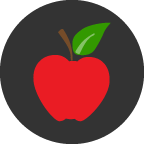 Books Activities
Books Activities
These activities combine literacy with hands-on fun!
-

- Activity Title
- ?
Topic or Theme
Identifying letters in a child's name and listen to ABC (The Alphabet Song)

-
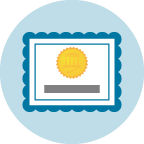
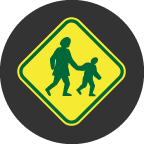
First Name
Brief description of activity or summary of tasks and/or materials used.
-

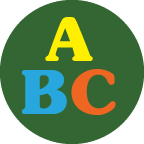
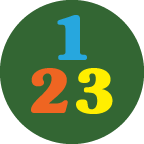
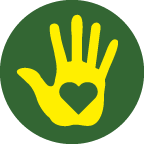

-
- Cooking
- 17
Making Spider Treats
Read book "The Very Busy Spider"; Learn parts of a spider using food
-
Making Spider Treats
Read book "The Very Busy Spider"; Learn parts of a spider using food
-


-
- Senses
- 11
Hearing
Read "Museum ABC" and play hide and seek with a whistle
-
Hearing
Read "Museum ABC" and play hide and seek with a whistle
-



-
- Letters
- 04
C & R
Reading book "The Alphabet Book", learn about letter C, find a picture of animal beginning with C and learn about the animal caraval
-
C & R
Reading book "The Alphabet Book", learn about letter C, find a picture of animal beginning with C and learn about the animal caraval
-



-
- Numbers
- 07
Reviewing #5
Reading "Sheep In A Shop", connecting dots and counting to 5
-
Reviewing #5
Reading "Sheep In A Shop", connecting dots and counting to 5
-



-
- Shapes
- 02
Heart
Read "My Very First Book of Shapes" and play a game with a deck of cards
-
Heart
Read "My Very First Book of Shapes" and play a game with a deck of cards
-




-
- Nature/Science
- 22
Learning About Swamps
Read "Deep In The Swamp" identify different animals, and use a map
-
Learning About Swamps
Read "Deep In The Swamp" identify different animals, and use a map
-



-
- Target Words
- 14
Goodnight, Sweet, Sour, Next
Read book "Goodnight Moon" with a fun counting activity
-
Goodnight, Sweet, Sour, Next
Read book "Goodnight Moon" with a fun counting activity
-



-
- Colors
- 08
Blue
Reading book "Color Dance" and playing "I Spy"
-
Blue
Reading book "Color Dance" and playing "I Spy"
-


-
- Colors
- 08
Purple
Read "Harold and the Purple Crayon" and mixing colors
-
Purple
Read "Harold and the Purple Crayon" and mixing colors
-


-
- Nature/Science
- 22
Animal Recognition
Using the book “The Mitten” for counting and animal recognition
-
Animal Recognition
Using the book “The Mitten” for counting and animal recognition
-



-
- Numbers
- 07
Review
Wordless books "Beach Ball" or "Wave" and stargazing
-
Review
Wordless books "Beach Ball" or "Wave" and stargazing
-



-
- Colors
- 09
White
Read book "Black and White Rabbit's ABC" and create a schedule for the month
-
White
Read book "Black and White Rabbit's ABC" and create a schedule for the month
-



-
- Senses
- 10
Sight
Read "Head to Toe" and practice recognizing pictures, words and numerals
-
Sight
Read "Head to Toe" and practice recognizing pictures, words and numerals
-


-
- Character Traits
- 12
Friendliness
Read book " Old Henry" and make a "Friendship Branch"
-
Friendliness
Read book " Old Henry" and make a "Friendship Branch"
-





-
- Surprise
- 26
Reading and Thinking
Read selections from book "My Very First Mother Goose" or Read/Listen here
-
Reading and Thinking
Read selections from book "My Very First Mother Goose" or Read/Listen here
-




Activity Skills Focus
1 Social / Emotional Skills
Skills that develop children’s ability to understand the emotions of others and help children recognize and use appropriate social behaviors (for example, making friends). In the Department of Education report “Guiding Principles A Resource Guide for Improving School Climate of January 2014 it states “strategies such as social-emotional learning programs that address non-cognitive skills, including problem-solving, responsibility and resiliency, can also help students develop the skills needed to fully engage and thrive in the learning environment.”
2 Language Skills
Skills that help children understand and communicate during early childhood. The alphabetic principle (knowing letter names and sound-letter matches) aids in language development and is enriched by verbal interactions with other children and adults (reading aloud and engaging in conversation).
View all Language Skills Activities
3 Math / Science Skills
Math and Science skills help children with problem-solving and reasoning. Exploring numbers, patterns, and measurements by using math manipulatives (beads, counters, pennies) are all ways children develop their math skills. Asking questions about their surroundings, learning a science vocabulary (predict, observe), and having hands-on experiences with their environment can help develop their science skills.
4 Motor Skills
Motor skills are actions that involve the movement of muscles in the body. They are divided into three groups:
1. gross motor skills, which are the larger movements of arms, legs, feet, or the entire body (crawling, running, and jumping)
2. fine motor skills, which are smaller actions, such as grasping an object between the thumb and a finger (pencils or scissors)
3. sensorimotor skills which use the five senses to guide physical motions as in eye-hand coordination.
View all Motor Skills Activities
5 Problem Solving Skills
Skills that help with the construction of thought processes, including memory, problem-solving, and decision-making.
